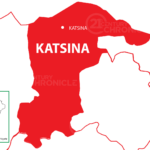The Bureau of Public Service Reforms (BPSR) has called for repeal or amendment of conflicting laws like the Official Secrets Act (OSA), Public Complaints Commission Act and Criminal Code, among others that affect the effective implementation of the Freedom of Information Act (FOIA) to avoid perceived conflicts with the Act.
The Acting Director-General of the Bureau, Mr. Dasuki I. Arabi, made the call on Tuesday in Abuja at the launch and public presentation of the “Policy Brief and Recommendations on Strengthening the Implementation of the Freedom of Information Act in the Nigeria Federal Public Service”.
The 54-page brief summarizes the results of the BPSR and ‘Right To Know (R2K)’ study on Administrative Burden in the implementation of the FOIA in selected Ministries, Departments and Agencies (MDAs) including the Office of the Head of the Civil Service of the Federation, Federal Ministry of Justice, Federal Ministry of Finance, and the Code of Conduct Bureau.
He said the passage of the Act in 2011 was a product of collaboration between citizens, organized civic society organisations and government.
He noted that it took 17 years from the origin of its first draft in 1994, to the passage by both chambers of the National Assembly on 24th May, 2011 and former President Goodluck Jonathan’s assent on 28th May, 2011 for it to become law.
“The FOI Act supersedes the Official Secrets Act, originally enacted in 1911, which forbade the unauthorized transmission, obtaining, reproduction, or retention of any classified matter.
“The Act applies not only to public institutions but also to private organisations providing public service, performing public functions or utilizing public funds.
“In particular, the FOI Act is designed to remove the aura of mystery and exclusion with which public servants cloak the ordinary operations of government and public institutions with secrecy.
“It also seeks to change the manner in which public records and information are managed,” Arabi said.
According to him, a number of public institutions are still resistant to full implementation of the FOIA.
He added that while the level of compliance with FOIA’s regulatory submission requirements by public institutions in Nigeria might have increased from 16 in 2011 to 73 in 2017, the overall level of statutory compliance by public institutions under the Act is still abysmally low at less than 10 percent of the estimated total number of 900 public institutions who should have complied with the law.

 Join Daily Trust WhatsApp Community For Quick Access To News and Happenings Around You.
Join Daily Trust WhatsApp Community For Quick Access To News and Happenings Around You.


